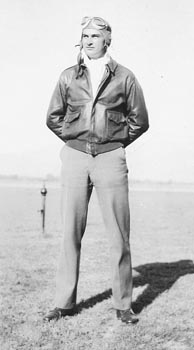A witness to infamy

"Raid lasted little over ¾ hour. Sporadic raids on PH [Pearl Harbor] and Hickam Field throughout day and night until 10 p.m.,” wrote 21-year-old Air Force Sgt. John Edward Maxey, a medic, who survived the infamous Pearl Harbor attack on Dec. 7, 1941.
Two days after the attack, Maxey discovered Japanese bombers had “blown a hole” in his car door with “a M.L. slug and knocked a dent in the top.”
But the damage to his car was nothing compared to a greater loss he experienced.
“...several of the men they blew to bits were friends of mine,” he wrote in his journal entry on Dec. 9, 1941. “I, myself, wish to settle with them [the Japanese attackers] in a hand-to-hand encounter if I ever get the chance.”
Maxey was born and raised in Knoxville, the son of a World War I veteran, and a graduate of Karns High School.
He began his military career in Aug. 1939 when he enlisted in the United States Army Medical Department, and was stationed at Wheeler Field in Hawaii when the Japanese attacked Pearl Harbor.
In May 1943, Maxey was commissioned as an officer, a Second Lieutenant Bombardier, and was stationed at a Southern Italy airbase for the remainder of the war where he flew 52 combat missions over Germany.
Maxey furthered his education in the Air Force schools, served during the Korean War, and retired from the service in 1959 as a Major after more than 20 years of service.
In the years following his military career, Maxey returned to his hometown of Knoxville, married, raised a family, bought a small farm and took up horticulture.
He never forgot his time in the war, nor his Pearl Harbor experience, and was a lifelong member of the Pearl Harbor Survivors Association where he stayed connected with fellow veterans who faced similar experiences during the war.
On Oct. 2, 1988, Maxey, 68, died, and was buried in the Mountain Home National Veterans Cemetery in Johnson City.
Maxey may be long gone, but his words and his legacy live on.
His account reflects the accounts of millions of veterans like him who have had similar experiences. Their stories may differ, and although the wars they fought in were in different times and places, the common denominator in their accounts is the bravery and the sacrifice they shown in their service to their country.

